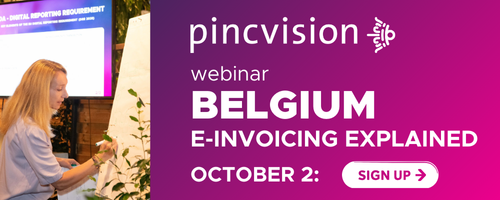Draft Documents for Public Comment published by the South African Revenue Service (SARS) is available by the link: https://www.sars.gov.za/legal-counsel/preparation-of-legislation/draft-documents-for-public-comment/
Eswatini is actively moving towards implementing a comprehensive e-invoicing and fiscalisation regime, targeting a live date of January 2028. The Eswatini Revenue Service (ERS) is leading this initiative and has issued a public tender for partners to provide the necessary fiscalisation technologies. The proposed system is likely to adopt a 5-corner model, similar to frameworks used in the EU, to facilitate B2B e-invoicing and real-time reporting to tax authorities. This initiative aims to enhance tax administration, automate compliance, and reduce fraud, aligning with regional trends towards digital tax reporting.
Key Themes and Important Ideas:
- Commitment to E-invoicing and Fiscalisation: Eswatini is establishing a mandatory e-invoicing and fiscalisation system, evidenced by the issuance of a public tender by the ERS.
- Target Implementation Date: The ERS aims for a live date of January 2028 for the new e-invoicing regime.
- Proposed 5-Corner Model: The initiative is expected to adopt a 5-corner e-invoicing model involving key parties such as suppliers, buyers, their respective service providers, and the tax authority.
- Broad Scope of Fiscalisation Technologies: The project’s scope extends beyond B2B e-invoicing to include fiscal data reporting, POS integration, blockchain technologies, and AI for transaction analysis.
- Emphasis on Technology and Data Analysis: Advanced technologies like blockchain and AI will be utilized for improved data storage, transaction validation, and compliance analysis.
- Compliance Automation and Improved Tax Administration: The initiative aims to automate taxpayer reporting and VAT payments, enhancing overall tax administration efficiency.
- Stock Management and Reporting: The project will include stock management and movement reporting to ensure accurate tracking and compliance throughout the supply chain.
- Alignment with Regional Trends: Eswatini’s move towards e-invoicing reflects a broader trend in the region, with neighboring countries like South Africa also advancing similar digital tax reporting systems.
- Procurement Process Details: The tender process allows for both national and international participation and follows a structured evaluation methodology.
- Focus on Ethical Conduct and Compliance: The RFP includes a code of ethical conduct for consultants to ensure integrity and compliance throughout the procurement process.
Conclusion:
Eswatini’s planned implementation of a comprehensive e-invoicing and fiscalisation regime by January 2028 signifies a significant digital transformation in tax administration. This initiative aims to improve tax compliance, reduce fraud, and enhance efficiency through advanced technologies, indicating a forward-thinking approach to digital tax reporting. Businesses operating in or with Eswatini should prepare for the impending changes, particularly concerning B2B e-invoicing and enhanced data reporting requirements.
Sources
- Eswatini Seeks Fiscalization Technology (E-Invoicing) Solutions – VATupdate
- South Africa Advances Towards Mandatory E-Invoicing to Combat Tax Fraud by 2028 – VATupdate
- E-Invoicing and VAT Update: VAT Hike Cancelled, E-Invoicing Planned for 2028 – VATupdate
- South Africa Proposes New Regulations for E-Invoicing and E-Reporting in Draft Bill
- South Africa Proposes VAT Amendments to Implement E-Invoicing and E-Reporting Systems
- South Africa Releases 2025 Draft Tax Bill to Support VAT Modernisation and E-Invoicing
- South Africa to Implement E-Invoicing and Real-Time VAT Reporting in Major Tax Overhaul
- South Africa’s VAT Modernisation: Draft Amendments Set Stage for Real-Time Digital Reporting
- South Africa’s VAT Overhaul: Real-Time Reporting and Compliance Changes on the Horizon
Other sources
Eswatini E-Invoicing Initiative
- Request for Proposal Issued: On March 27, 2025, Eswatini’s Public Procurement Regulatory Agency (ESPPRA) issued an RFP for fiscalization technology aimed at enhancing tax compliance, with a submission deadline set for May 16, 2025.
- Key Features of the RFP: The proposal seeks solutions that include an electronic invoicing system for automated invoice generation, transmission, validation, and real-time reporting to the Eswatini Revenue Service (ERS), as well as fiscal devices for point-of-sale transactions, digital platforms, API integration, and blockchain technology for secure transaction records.
- Timeline for Selection: The selection of the service provider for the fiscalization technology is expected to be announced by mid-June 2025, marking a significant step towards improving the efficiency and reliability of tax processes in Eswatini.
Source Pagero
- See also
- Join the Linkedin Group on Global E-Invoicing/E-Reporting/SAF-T Developments, click HERE
Latest Posts in "South Africa"
- South Africa Proposes Major VAT Reforms to Modernize Tax System
- SARS Seeks Public Input on Customs Rules for Transfer Pricing Adjustments, Ending October 2025
- South Africa’s New Voluntary Disclosure Programme to Revolutionize Customs and Excise Compliance
- South Africa Prepares Major VAT Reforms
- South Africa’s 5-Corner Peppol Integration to Modernize E-Invoicing and VAT Reporting by 2028















